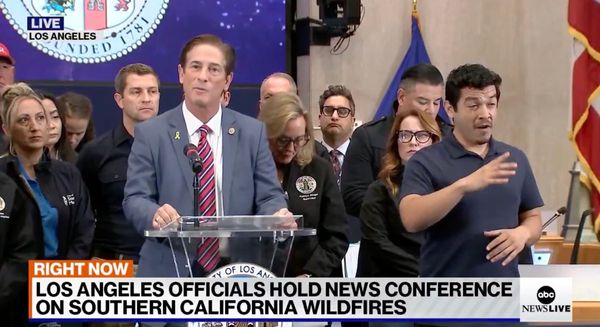
The Iowa caucus represents an appropriately eccentric starting point for the selection of the 2024 US presidential nominees. On both sides of the political divide, caucus members rarely vote for the same people as the rest of the country. The Republicans here are dominated by evangelicals, hence the wins for Mike Huckabee in 2008 and Rick Santorum in 2012 — and its anachronistic procedure (more on that later) caused havoc in the Democratic contest last time out. Regardless, its default status as stage-setter is invariably influential in the year to come.
Leaving Hotel Fort Des Moines on caucus day, Donald Trump announced to the assembled press that “we’ve won [Iowa] twice, as you know”. That he lost to Ted Cruz in 2016 was such a minor example of his campaign’s complete disjuncture from reality that it barely merited the question as to whether he was actively lying, drawing on a sincerely distorted understanding.
Though results won’t filter through until this afternoon Australian time, Trump is going to win. This is despite having attended no debates and barely campaigning around his crowded schedule of court cases. The religious right has, in Iowa as in so many places around the US, fallen in behind someone whose vulgarity, avarice and serial infidelity (not to mention several accusations of sexual assault) would seem to represent everything in the modern world they oppose.
The melancholy attempts of formerly influential Republicans in the state to turn the tide against him have had essentially no effect. Indeed, if another candidate even runs him close, it will be a major surprise and something of an embarrassment, both for Trump and the pollsters, who consistently give him a lead of double digits over any other contender.
The one wildcard is Iowa’s terrible weather, which combined with Iowa’s distinct caucus procedure (voters have to turn out in person to attend caucus meetings that then decide how they will vote, and have a much shorter time frame to do so) could create the first instances of institutional voter suppression Trump doesn’t like the look of. In this context, Trump has been telling his supporters to “pretend you’re one point down”, and insisting none of his voters stay home despite the “life-threatening cold” promised for caucus night, with a wind chill of 40 degrees below zero across the state.
He told a rally on Sunday “if you vote and then pass away, it’s worth it”, which got a laugh. “You’ll be safe and all … You’re going to be all indoors, but you’ve got to get up; you’ve got to vote. Because it has nothing to do with anything but taking our nation back, and that’s the biggest thing there is.”
The question has always been whether anyone can offer a true alternative, and increasingly the answer is Nikki Haley. Her mangling of a question about the causes of the US Civil War (she failed to mention slavery) was widely mocked by her Republican opponents, but having positioned herself as both “the last moderate standing” (as Crikey pointed out this morning, that may be slightly jarring from an Australian point of view, given her social views) and a more expansive foreign policy than Trump, she has worked her way into a likely second-place finish.
Spare a thought then for Florida Governor Ron DeSantis. At one time he was the Republican most likely, “Trump with a brain”, representing the progressive nightmare of autocratic hard-right thinking married to intelligence, work ethic and competence. He turned out to be nothing much at all. Thanks to a lack of product differentiation from the OG and his own quite profound lack of charisma, he has drifted so far down the pecking order that a sufficiently brutal result for him in Iowa could see his presidential campaign finished at the first hurdle.
All of this is simply embroidery. Trump will be the Republican nominee for president. At the very least, if he fails to do so it would be a disaster for polling greatly in excess of what happened in the other direction in 2016. Amid the court cases, the accelerating rhetoric, promises of purges and armies turned on US citizens, his lead over Republican alternatives is even greater nationally than it is in Iowa.
Is Trump unstoppable? And what would a second term of The Donald mean for the US? Let us know your thoughts by writing to letters@crikey.com.au. Please include your full name to be considered for publication. We reserve the right to edit for length and clarity.







